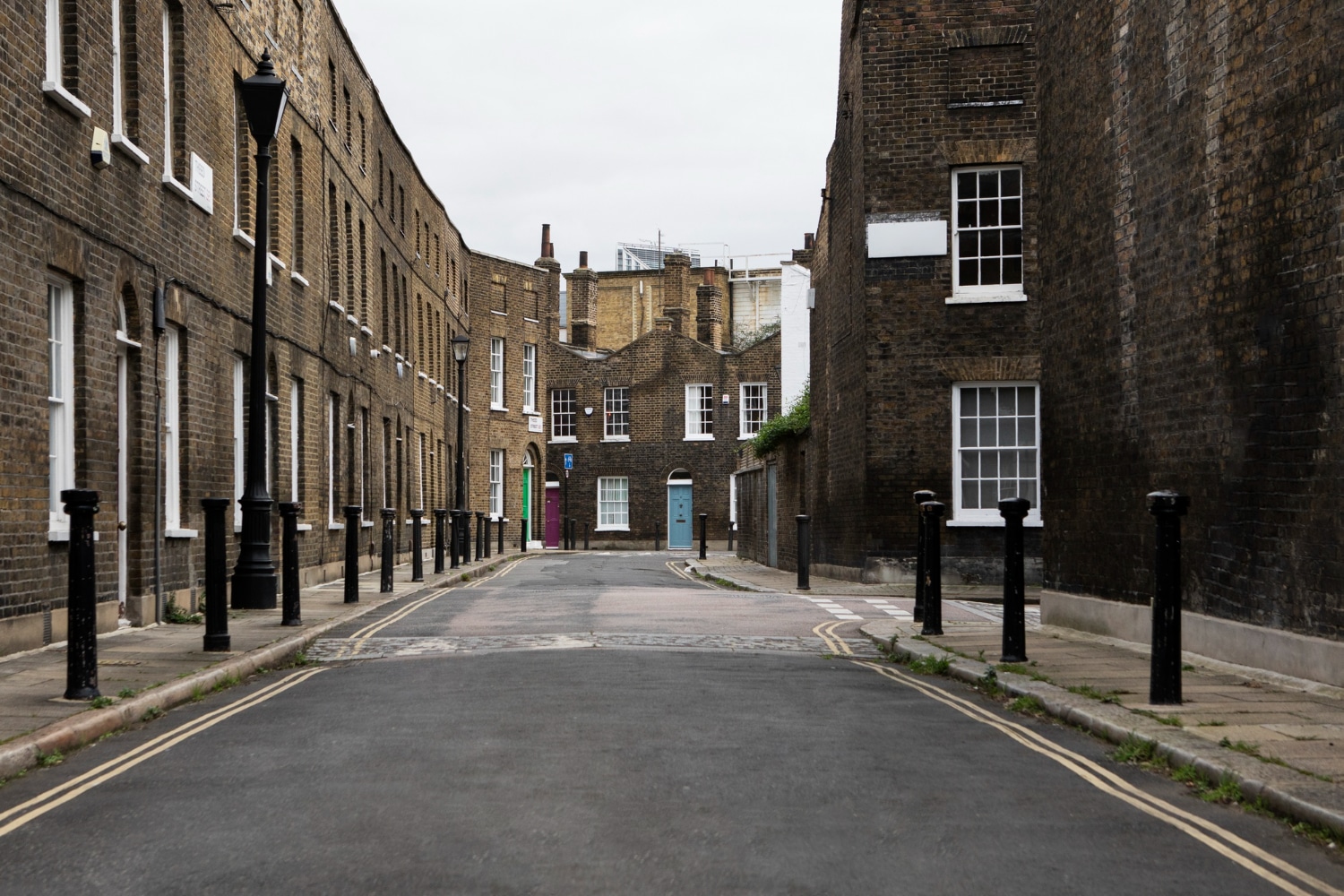What is social housing in the UK? A comprehensive guide for you

Social housing is a vital resource for individuals and families who cannot afford to rent or buy housing on the open market.
It offers affordable accommodation and is typically provided by local authorities or housing associations.
This article aims to provide a thorough understanding of social housing in the UK, including who qualifies for it, how to apply, and the benefits it provides.
Whether you’re considering social housing as an option or simply want to know more about the system, this guide will answer all your questions, and equip you with the knowledge you need.
What is social housing?
Social housing refers to rental housing that is owned and managed by local authorities or housing associations.
The primary purpose of social housing is to provide affordable accommodation to individuals and families who struggle to afford housing in the private market.
Rent prices for social housing are typically lower than those in the private sector and are set at a rate based on the income and ability to pay of the tenant.
Social housing is a significant part of the UK’s welfare system and is designed to help those in need, including low-income workers, people with disabilities, the elderly, and vulnerable individuals.
Unlike private rental properties, which operate under market conditions, social housing is more regulated and the rent is controlled to ensure it remains affordable for those on lower incomes.
Social housing can come in various forms, such as flats, houses, or bungalows, and can be rented by individuals or families.
The availability of social housing is crucial for providing security to people who might otherwise be unable to afford a place to live. For more details on social housing, you can refer to the Shelter website.
The role of housing associations and local authorities in social housing
Social housing in the UK is primarily provided by two types of organizations: local authorities (often referred to as councils) and housing associations.
Local authorities are public sector organizations responsible for the delivery of social housing in their area, while housing associations are independent, not-for-profit organizations that work with local councils to provide affordable housing.
- Local Authorities: Local councils own and manage a large proportion of social housing in the UK. They allocate homes to people based on need and often have waiting lists, as the demand for social housing usually exceeds the supply.
- Housing Associations: Housing associations also provide affordable housing but tend to operate across a wider geographical area than local councils. They often have their own set of criteria for eligibility and different ways of managing and allocating homes.
Together, these organizations ensure that social housing is available to those who need it most, providing a safety net for vulnerable individuals and families.
Who qualifies for social housing?
Eligibility for social housing is primarily determined by a person’s need and the availability of housing in their local area.
Each local authority and housing association may have slightly different criteria, but the general requirements include:
- Income Level: Social housing is typically aimed at individuals and families with low incomes. However, the exact income thresholds vary depending on the local council or housing association. If your income is too high, you may not be eligible for social housing.
- Housing Need: If you are living in overcrowded conditions, your home is unsuitable for your needs (e.g., if you are disabled and need a specially adapted home), or you are facing homelessness, you are more likely to be eligible for social housing.
- Residency: Applicants typically need to be a UK citizen or have indefinite leave to remain. Some councils may also give priority to people who have lived in the area for a certain number of years.
- Health and Disability Needs: Individuals with health issues or disabilities that make it difficult for them to live in private or unsuitable housing may be given higher priority.
- Family Size: Larger families may be given priority in securing homes with more bedrooms to accommodate their needs.
For more detailed information on eligibility, you can refer to the Tower Hamlets application page.

Priority needs for social housing
The UK government prioritizes specific groups of people for social housing, particularly those who are at risk of homelessness or facing severe housing issues.
While the priority system may differ slightly from one local authority to another, there are general guidelines in place to ensure that those in most need to receive housing assistance first.
Homeless individuals or families, or those who are in danger of becoming homeless, are typically given priority for social housing.
This can include people who are currently living in temporary accommodation or in dangerous or unsuitable conditions.
In addition, people living in overcrowded conditions, where the home is too small to accommodate the family, are likely to be prioritized.
Families or individuals who need adapted housing due to disability or health conditions may also receive priority, as can elderly individuals who require accommodation suited to their needs.
Local authorities use different systems, such as points or banding, to rank applicants based on the severity of their housing need.
These systems help ensure that those in the greatest need are given the highest priority, although waiting times can still be long, especially in areas with high demand.
How to apply for social housing
Applying for social housing is a process that usually begins with registering on your local council’s housing register.
The process can vary depending on where you live, but it generally involves the following steps:
- Check Eligibility: Before you apply, check whether you are eligible for social housing by reviewing the criteria set out by your local council or housing association. Most councils will have an online tool or a helpline to guide you through the eligibility check.
- Complete the Application Form: Once you’ve confirmed your eligibility, you need to fill out an application form. This form will require personal details such as your income, family size, and housing situation. You may also be asked to provide documentation, such as identification, proof of income, and details of your current living conditions.
- Wait for an Assessment: After submitting your application, the council will assess your housing needs. This can take some time, and you may be placed on a waiting list depending on the level of need in your area.
- Receive an Offer: If you are eligible and there are suitable properties available, you will be offered a home. However, waiting times can be long, and not everyone on the housing register will receive an offer right away.
- Appeals Process: If your application is denied, or you disagree with the decision, you have the right to appeal. Contact your local authority or housing association to find out how to proceed.
For specific information on how to apply, visit the Housing.org.uk guide.
The housing register and waiting list
The housing register is a list of people who have applied for social housing and are waiting for a suitable property to become available. Local councils manage this register and allocate homes based on priority needs.
The waiting list can be long, especially in high-demand areas, so it is essential to understand that applying for social housing does not guarantee a quick move.
In some cases, it may take years before a suitable property becomes available. Councils often operate a banding or points system to rank applicants based on the severity of their housing need.
The benefits of social housing
Social housing offers numerous benefits for individuals and families in need of affordable accommodation.
The primary benefit is the affordability of rent. Rent for social housing is generally much lower than private sector rents, making it an attractive option for low-income families, individuals, and vulnerable groups.
Another benefit of social housing is long-term stability. Once you are allocated a social housing property, you are typically provided with a secure tenancy agreement, meaning you cannot be evicted without a valid reason.
This stability is crucial for those who may have experienced periods of housing instability or homelessness in the past.
Additionally, social housing offers peace of mind for tenants with specific needs. For example, some housing associations provide tenants with access to support services, such as help with managing finances or adjusting to life in a new home.
For those with mobility or health needs, adapted homes may be available to ensure that tenants live comfortably and safely.
Social housing in the UK vs private renting
While social housing provides affordable options, private renting offers more flexibility but comes at a higher cost.
The key differences between social housing and private renting include the cost of rent, tenure security, and availability.
Social housing typically comes with lower rent costs, but it can be more difficult to access due to long waiting lists and limited availability.
Private renting offers more choice in terms of location and property type, but it often comes with higher rental costs and less security for tenants.
Rent prices in the private sector are subject to market conditions, and tenants may face rent increases during their tenancy, which can make it harder to budget.

FAQ section
- What is social housing? Social housing is affordable housing provided by local authorities or housing associations to individuals or families who cannot afford to rent in the private market.
- How do I apply for social housing? To apply, register with your local council’s housing register, complete the application form, and provide necessary documentation. Your eligibility and priority will be assessed.
- Who is eligible for social housing? Eligibility depends on factors such as income, housing need, health or disability, and family size. Specific criteria may vary by local council or housing association.
- What is the waiting time for social housing? The waiting time can vary significantly depending on demand and location. In high-demand areas, it may take several years before a suitable property becomes available.
- Can I appeal a social housing decision? Yes, if your application is denied or the amount of housing offered does not meet your expectations, you can appeal the decision. Contact your local authority or housing association to find out how to proceed.
Social housing plays a critical role in ensuring that people with low incomes or in vulnerable situations have access to affordable, secure housing.
While applying for social housing can be competitive, understanding the eligibility criteria, application process, and benefits can help you navigate the system more effectively.
By utilizing resources such as local councils and housing associations, you can increase your chances of securing the support you need.





